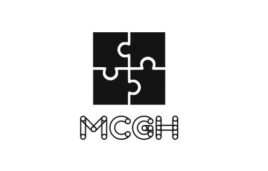
The Global Engagement Center division of the United States Department of State is announcing the inaugural U.S. Africa Tech Challenge.
The U.S. – Africa Tech Challenge will seek to identify African technologies that address the issues of state and non-state disinformation and propaganda.
Dr. David Bray inaugural Director of the Atlantic Council’s GeoTech Center and Executive Director of Commission on Geopolitical impacts of New Technologies and Data highlighted this during this year’s East AfricaCom 2020 virtual event.
The challenge will be held in a teo-part virtual event. The first event will take place virtually in April 2021. The second event also virtual will colocate with East Africacom 11th to 12th May 2021. Up to three winners of the U.S. – Africa tech challenge will receive a total grant of up to $250,000 USD.
Dr. Bray notes that “the very technologies that allow us to communicate and relate to each other online can and will be influenced by other nations and internally. We need to think about how we actually address these challenges“.
Atlantic Council will act as implementing partners of the challenge. It is sponsored by the U.S. State Department’s Global Engagement Center. It also is in partnership with, Twitter, U.S. Embassy Nairobi, the European Union, the Intergovernmental Authority on Development (IAD) and Park Advisors.
Watch the U.S. Africa Tech Challenge announcement below
kindly visit the event information page for more details on how to apply and participate
Update:
This now includes link to the event page, event dates and total grant amount for up to three winners, $250,000 USD.
kindly sign up
and get the latest from
the tech ecosystem. ” custom_font_size=”16″ custom_border_radius=”0″ custom_border_weight=”1″ custom_padding=”15″ custom_spacing=”10″ submit_button_classes=”” email_field_classes=”” show_only_email_and_button=”true”]
Check out other tech stories making the news in the region.
- YouTube wouldn’t build an app for the Apple Vision Pro, so Someone did! Introducing Juno
- What is Microsoft 365?
- Get to know Norton Genie app?
- Microsoft Copilot on iOS and Android get upgrade
- Microsoft’s new OneDrive design is out now!
- Sudo command comes to Windows 11
- Google has announced that its first cloud region in Africa is now open for business.
- Apple Vision Pro Review
- Apple’s first-party Podcasts app
- What is Amazon presents Diffuse to Choose?

